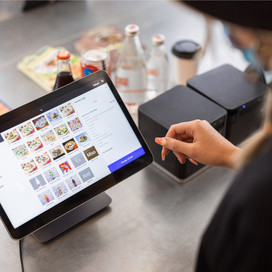Table of contents
With retailers facing ongoing supply chain issues, out-of-stock items are becoming a regular thing. Naturally, when an item is out of stock it can be disappointing for customers, especially when it happens for extended periods of time.
Why are so many items out of stock right now?
There are two reasons.
First, because of disruptions in the supply chain due to the ongoing COVID-19 pandemic. The supply chain can be thought of as a giant game of musical chairs — things need to line up perfectly and right now everything is out of sync. Experts noted in January that there were two main issues creating the record shortages seen across multiple industries.
- Decrease of workers: Retailers are still in a deficit, trying to recover from the initial days of the pandemic. In 2020, global shutdowns caused the worldwide supply chain to come to a screeching halt as businesses reduced staff, or shutdown all together, to help avoid the spread of COVID. On a global scale, shipping ports, including some of the world’s largest ports that serve as main hubs for the supply chain, temporarily closed or had restricted access because of border policies and reduced staff. Even as ports and other hubs across the supply chain have opened up, there are still constant disruptions because of the unpredictability of COVID surges and the effects on workers.
- Increase in demand: At the same time that the supply chain decreased operations, demand for consumer goods has soared. But with the supply chain already being in a deficit, keeping items in stock has become a game of catchup with a constantly moving target.
The second reason so many products are out of stock in 2022 is climate change. The year started with major flooding across much of the East Coast of Australia. This has impacted not only properties and homes, including farmland where much of the produce comes from, but also the roads leading in and out of these places. With flooded crops, there hasn’t been any produce, and with closed roads, there are limited ways to transport the products.
Between flooding and COVID-19, there’s little wonder that Aussie supermarkets have been limited on supplies. For those who understand and work within a supply chain every day, this might seem reasonable, albeit still frustrating. For customers who might not have any experience with supply chain management, it’s disruptive to their way of life and it might seem easier to blame the retailer for out-of-stock items, even when it is due to larger industry disruption.
Among the challenges of navigating supply chain disruptions, retailers are also faced with communicating it to their customers.
Tips on communicating when items are out of stock
It can be tempting to give a long-winded answer explaining that items are out of stock for reasons out of a retailer’s control, but when communicating with your customers, it’s best to be direct and simple. Here are the best practices for communicating when items are out of stock.
1. Tell customers as soon as possible
As soon as you know an expected item won’t be available, try to move quickly to update your inventory, website, and physical store. You want to avoid customers ordering an item and then having to let them know it’s not available after the fact, especially if you do not know exactly when that will be. The same thing goes for shipping delays — if an order has already been placed but you have not been able to replenish your inventory and ship it out, update customers immediately, telling them the item will not arrive on the original expected delivery date.
2. Be transparent
You can explain to customers why an item is out of stock and when you realistically expect it to be available again. In general, customers respect brands that are more honest and transparent in their communications. The key is to toe the line between explanations and excuses. It’s easy to blame third parties, but it’s better to just take ownership and vow to keep them updated on the status of the item.
3. Be apologetic
Even if an item is out of stock for reasons beyond your control, still apologise to customers for the inconvenience. It’s important to continue to try and positively influence your customer experience, even if you can’t meet their needs. If a prospective customer has a good experience with you, they’ll be more likely to be patient and place an order once the item becomes available. An additional option is to attempt to make it right in the customer’s eyes. Offer discounts, refunds, or suggestions for other items that you do have in stock.
4. Provide customer service information
Provide customers with all the information they’ll need to reach you (both online and in person) if they have questions about out-of-stock items. It’s important to keep the lines of communication between you and your customers open and make it easy for them to get in contact with you. The same goes for social media; customers often reach out through DMs, so be sure to check them regularly and respond or direct them to the appropriate customer service channels. Make sure to also equip your in-store staff with a script or answer for when customers inquire about out-of-stock items.
5. Follow up with a “back in stock” email
Once an item is back in stock, let the customers who have signed up for your mailing list know with an email alerting them of the available item. Send an email with a link to the product page or offer an option to place the item on hold for pickup in-store.
Unfortunately, it’s still unclear when supply chain issues will clear up and inventory will become more predictable. But, by being transparent and open about item availability, you can still provide customers with a good experience that will motivate them to purchase your items when they come back in stock.
![]()











